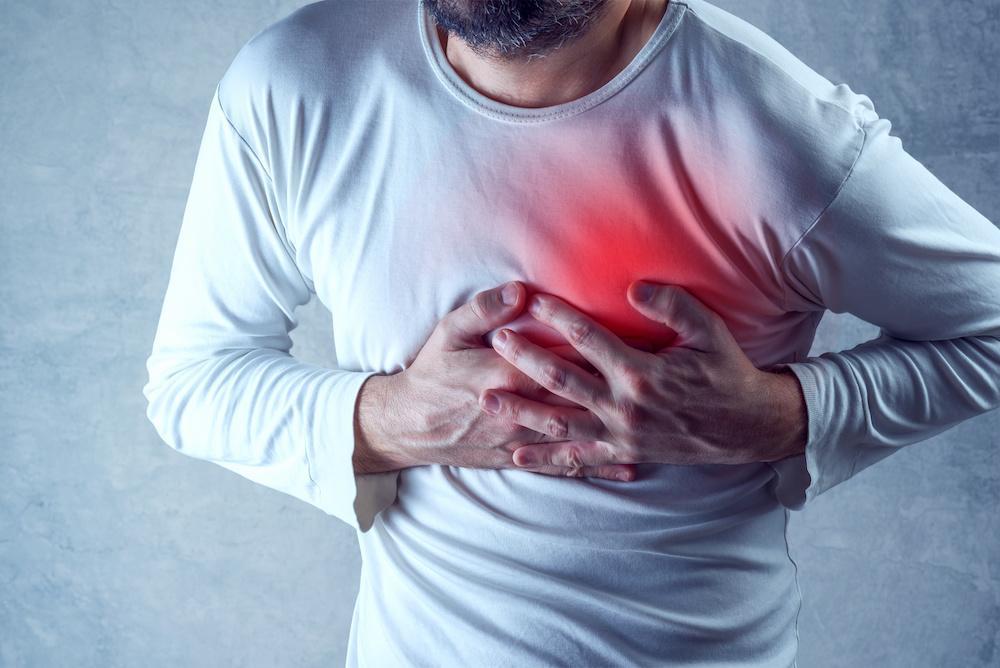Chest pain can be a confusing and alarming symptom. It appears in many forms, from a dull ache to a sharp stab, and can stem from various causes. Understanding when these discomfort signals a serious issue helps you know when to seek medical attention. This guide offers clear information to help you navigate your symptoms and make informed decisions about your health.
When Is Chest Pain Serious?
When chest pain strikes, it’s natural to wonder if it’s a serious issue. While many causes are harmless, some signals demand immediate medical attention. Knowing these key indicators can help you make informed decisions about your health.
Here are some signs to watch:
- Spreading Discomfort: If your chest pain extends to your jaw, neck, back, or arms, this may be a sign that requires immediate medical evaluation.
- Intense Sensation: A feeling of heavy pressure, squeezing, or a crushing sensation in your chest should not be ignored. This type of pain often lasts for more than a few minutes or comes and goes, then returns.
- Breathing Difficulties: Shortness of breath, even mild, when accompanied by chest pain, is a serious red flag.
- Sudden Changes: Breaking out in a cold sweat, feeling lightheaded or dizzy, or experiencing nausea and vomiting, along with chest discomfort, all indicate a need for urgent care.
- Your Personal Health Profile: Be aware of your own risk factors for heart conditions. These include a family history of heart disease, high blood pressure, high cholesterol, diabetes, or a history of smoking. If you have these risk factors and experience chest pain, seeking professional medical advice is even more necessary.
Recognizing these serious signs and understanding your own health context empowers you to act quickly. Don’t hesitate to seek medical help if you experience any of these symptoms; your well-being is paramount, and a swift evaluation can make all the difference.
Why Should You Act Quickly?
Acting quickly when you experience specific types of chest pain can make a significant difference. Some medical conditions that cause this symptom are time-sensitive. Prompt diagnosis and treatment may lead to better outcomes by addressing the underlying cause before it has a chance to progress. Delaying medical care could allow a condition to worsen.
Receiving a swift medical evaluation allows healthcare providers to identify the source of your pain. They can then begin the appropriate treatment right away. This quick response can be particularly meaningful for heart-related events. Getting a diagnosis helps you understand what is happening in your body and what steps to take next.
What Tests Diagnose Chest Pain?
When you arrive at a medical facility for chest pain, healthcare professionals will use several tests to understand the cause. These diagnostic tools help them get a clear picture of your heart’s health and function. The specific tests ordered will depend on your symptoms and medical history.
Here are some common tests used to diagnose the source:
- Electrocardiogram (ECG or EKG): This non-invasive test records the electrical activity of your heart. It can detect abnormal rhythms and signs of heart muscle damage.
- Blood tests: Doctors check for certain proteins or enzymes that are released into the bloodstream when the heart muscle is damaged. These markers help identify a heart attack.
- Chest X-ray: An X-ray image allows doctors to examine your heart, lungs, and blood vessels. It can help rule out lung-related problems or other issues in the chest cavity.
- CT scan: A computed tomography scan provides detailed images of your heart and the arteries. This may help identify blockages or other structural problems.
After reviewing the results, your healthcare provider will have a better understanding of what is causing your pain. This information enables them to recommend the most suitable course of action for your specific situation.
Act Now
Recognizing the signs of serious chest pain is the first step toward protecting your health. Your awareness of the symptoms and when to seek help is a powerful tool. If you experience pain that is severe, persistent, or accompanied by other concerning symptoms, do not hesitate to get medical help. Call 911 or go to the nearest emergency room for a prompt evaluation. Taking swift action allows you to get the answers and care you need.


